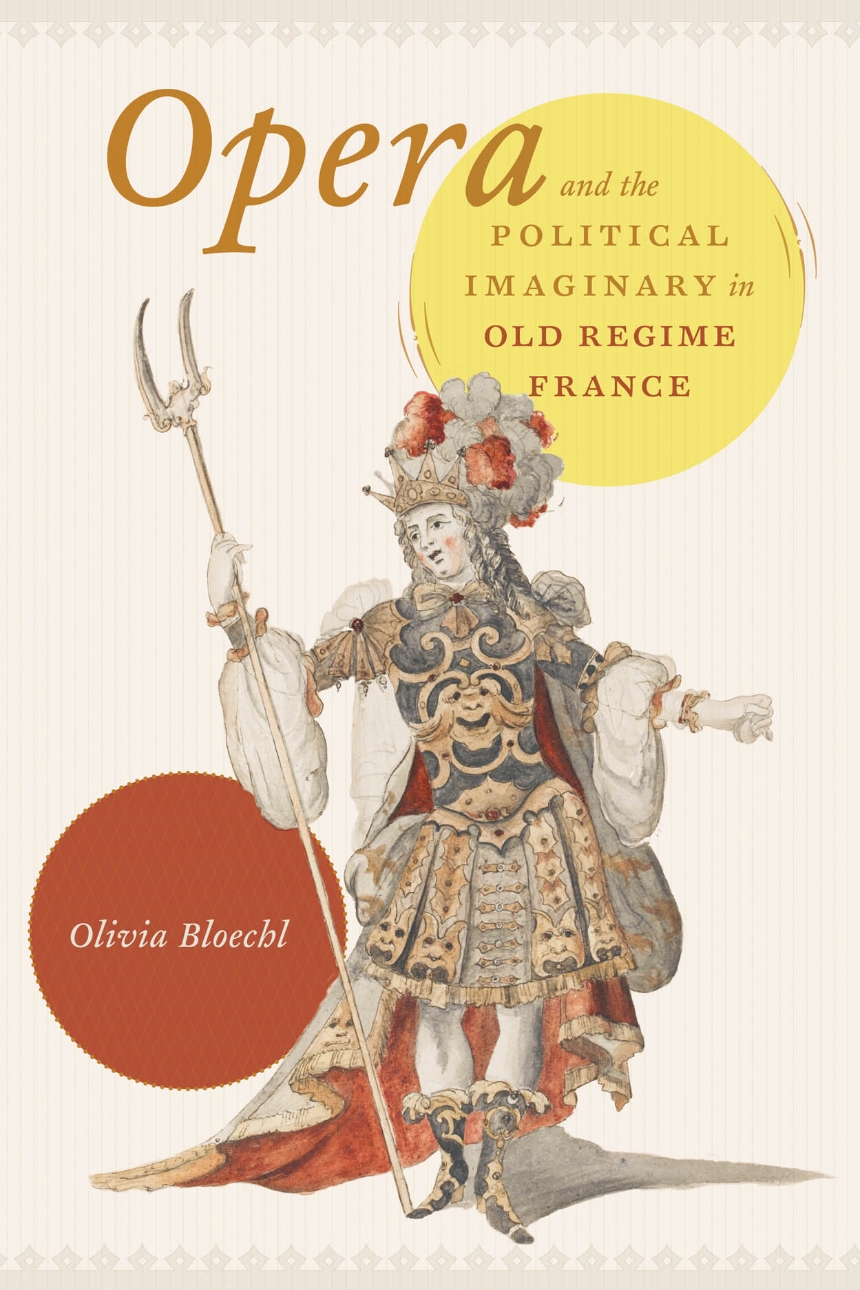Opera and the Political Imaginary in Old Regime France
From its origins in the 1670s through the French Revolution, serious opera in France was associated with the power of the absolute monarchy, and its ties to the crown remain at the heart of our understanding of this opera tradition (especially its foremost genre, the tragédie en musique).
In Opera and the Political Imaginary in Old Regime France, however, Olivia Bloechl reveals another layer of French opera’s political theater. The make-believe worlds on stage, she shows, involved not just fantasies of sovereign rule but also aspects of government. Plot conflicts over public conduct, morality, security, and law thus appear side-by-side with tableaus hailing glorious majesty. What’s more, opera’s creators dispersed sovereign-like dignity and powers well beyond the genre’s larger-than-life rulers and gods, to its lovers, magicians, and artists. This speaks to the genre’s distinctive combination of a theological political vocabulary with a concern for mundane human capacities, which is explored here for the first time.
By looking at the political relations among opera characters and choruses in recurring scenes of mourning, confession, punishment, and pardoning, we can glimpse a collective political experience underlying, and sometimes working against, ancienrégime absolutism. Through this lens, French opera of the period emerges as a deeply conservative, yet also more politically nuanced, genre than previously thought.
In Opera and the Political Imaginary in Old Regime France, however, Olivia Bloechl reveals another layer of French opera’s political theater. The make-believe worlds on stage, she shows, involved not just fantasies of sovereign rule but also aspects of government. Plot conflicts over public conduct, morality, security, and law thus appear side-by-side with tableaus hailing glorious majesty. What’s more, opera’s creators dispersed sovereign-like dignity and powers well beyond the genre’s larger-than-life rulers and gods, to its lovers, magicians, and artists. This speaks to the genre’s distinctive combination of a theological political vocabulary with a concern for mundane human capacities, which is explored here for the first time.
By looking at the political relations among opera characters and choruses in recurring scenes of mourning, confession, punishment, and pardoning, we can glimpse a collective political experience underlying, and sometimes working against, ancienrégime absolutism. Through this lens, French opera of the period emerges as a deeply conservative, yet also more politically nuanced, genre than previously thought.
272 pages | 9 halftones, 31 line drawings, 1 table | 6 x 9 | © 2018
History: European History
Music: General Music
Political Science: Political and Social Theory
Reviews
Table of Contents
Editorial Principles
Preface
Introduction. Sovereignty and Government in the Tragédie en musique
1. The Politics of Glory: Angelic Citizenship and the Contemplative Chorus
2. Choral Lament and the Mourning Public
3. True Confessions: Opera’s Theater of Guilt and Remorse
4. The Tormenting Orchestra
5. Spectral Kingdoms: Poetics and Politics of Les Enfers
6. Pluto, the Underworld King
Conclusion. A Theater of Precarity
Appendix. Operas and Ballets Cited
Acknowledgments
Abbreviations
Notes
Bibliography
Index
Preface
Introduction. Sovereignty and Government in the Tragédie en musique
1. The Politics of Glory: Angelic Citizenship and the Contemplative Chorus
2. Choral Lament and the Mourning Public
3. True Confessions: Opera’s Theater of Guilt and Remorse
4. The Tormenting Orchestra
5. Spectral Kingdoms: Poetics and Politics of Les Enfers
6. Pluto, the Underworld King
Conclusion. A Theater of Precarity
Appendix. Operas and Ballets Cited
Acknowledgments
Abbreviations
Notes
Bibliography
Index
